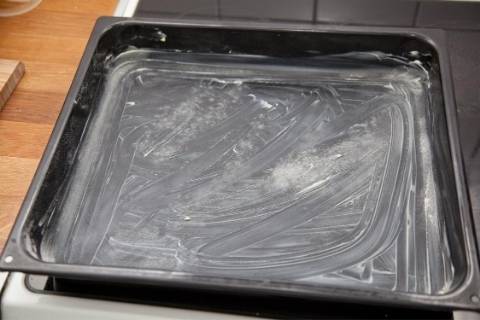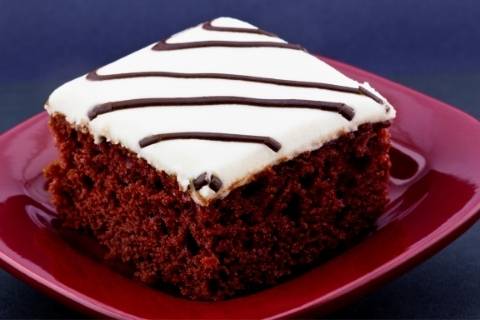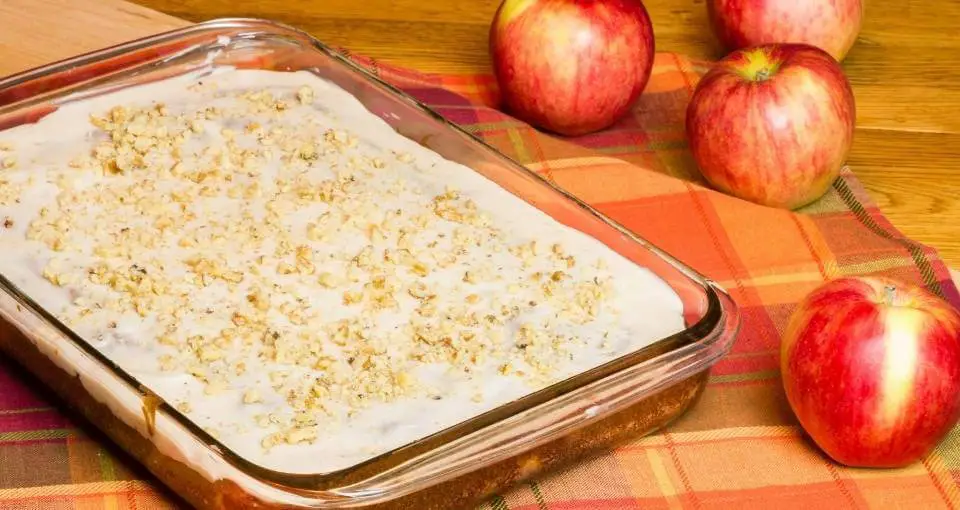Perhaps you are a baker on the rise, or there is an upcoming birthday and you are on cake duty. No matter the skill, I am certain that with a little bit of help and some basic advice you too can bake the perfect cake. Maybe the recipe does not specifically call for greasing the pan and now you are left wondering: should you grease a cake pan?
Sheet cakes are commonly baked using a glass pan. You should always grease a pan before beginning to make a cake. Whether you are using a glass or metal pan, do not forget this step.
What is the best way to do that, what is best to use to achieve the perfect cake, and what to pay an extra bit of attention to while baking? Is it better to use glass or metal and what does that mean in terms of baking time?
Have no fear, I will bring you all the tips and tricks that first-time bakers often don’t know. Remember, bake smarter, not harder!
Do you grease a glass pan for cake?
Let’s start with rule number one: always grease your pan. You don’t need to use too much oil to achieve the best results. Less is more in this case. If you can get your hands on those smart bottles with a spray cap, buy those. If not, buy any regular oil in a bottle and pour some of it in a spray bottle you probably already have.
Why should you do this? Well, have you ever baked something and gotten those burnt edges where they weren’t supposed to be any? And maybe you even destroyed your pan in the process?
Don’t despair, it does not make you a bad baker. You just didn’t know about a very helpful trick – which you now do. So get to baking!
When using glass cake pans, it is not your fault those edges got burnt. It usually happens in the absence of some form of lubrication for your cake. It will burn, stick, and you will have a hard time washing that brand new addition to your kitchen.
How To Grease A Glass Pan For A cake?
It is your choice whether to use oil or butter or even margarine. Apply it around the edges with a kitchen brush or your fingers, and layer the bottom as well – use baking paper on the bottom and grease the paper. Try not to bake without parchment paper to avoid burning. It will save your pan and keep it looking new instead of rusty and burnt.
You can sprinkle a bit of flour in between your fingers on the bottom of your pan and then take it in your hands and shake for a few seconds to distribute all the layering ingredients evenly. If you are in a hurry to bake something of your liking – I won’t judge.
Don’t have a parchment paper? Use silicone baking pads. This will allow you to bake without greasing the pan and leave you with almost no cleaning necessary. So consider switching to those if you are feeling a bit lazy or environmentally friendly.

How Do You Keep A Cake From Sticking To A Glass Pan?
It is probably best you use butter to grease up your pan. It will help keep the flavor and it is thick enough not to slide to the bottom and make your cake too tacky. So butter up, use parchment paper or baking pads, and one more thing:
Leave your cake to cool off before taking it out of the pan when it is done. It needs a bit of time to settle. If you take it out too soon it might get stuck to the pan and fall apart.
But be careful not to leave it for too long, since this will cause it to stick to the bottom if not for the paper. So take your cake out when it is not too hot nor cold.
Make sure you are following directions if buying a mixture. Your glass pan could make your cake turn brown faster since glass will absorb heat. So, reduce heat while baking to avoid this unwanted result.
What Causes A Cake To Stick To The Pan?
You can do everything you are supposed to, but your cake will still stick. Why? If you are using a glass pan and bake a cake at a very high temperature it can overheat. The glass will be very hot, causing the oil to evaporate and your cake to overbake.
Another reason your cake is sticky is that you just didn’t use enough butter or oil. The pan needs to be coated but you should by no means have any butter swimming around. Think of applying sunscreen – you will apply it just enough to make your skin feel a bit moist and oily.
If your cake does get sticky, use a spatula around the edges to get it out in one piece. If it starts falling apart, try to put it in the fridge and try again after some time.
If you used aluminum foil, make sure it is greasier than parchment paper would be. It is a very thin protective layer, but it will help with the mess. Foil can stick to your cake as well, so maybe switch to paper for better results.
What Is The Best Way To Bake A Cake In A Glass Pan?
If you opted for a glass pan, you will need to follow certain instructions that may differ from when baking in metal.
- Take your recipe seriously. Make the batter according to the recipe you have and try to find one that uses a glass pan so you don’t have to guess when to reduce heat.
- Grease the pan as mentioned. Use either oil, butter, or margarine. Cover the glass bottom with parchment paper for optimal baking results. Try to cut it to your pan’s dimensions.
- Preheat the oven according to your recipe. I recommend you preheat and bake it 25 degrees lower than the one suggested for a metal pan to avoid overheating your pan.
Can You Use Parchment Paper In A Glass Pan?
Not only you can, but it is also recommended. It works a lot better than aluminum foil. Unless you are using silicon pads, then the process will require less work and less preparation.
Parchment paper is used because it allows your cake to be baked evenly on the bottom. Foil can get crumpled and create hot spots. If your pan is not the best pan ever, parchment paper can save your cake batter.
It is a great option because you can cut it in any shape and use it for any pan you have. It makes the cleaning process almost too easy.
Does A Glass Pan Affect Baking Time?
Pan material affects baking time since materials you can use for baking distribute heat differently. Baking is essentially a process of chemical reactions. Experienced bakers tried different methods, materials, and ingredients before they cooked their best piece of cake.
Glass pans distribute heat evenly and warm up slowly. But once that pan is hot, it stays hot for quite a while. Meaning, it will keep its heat after you reduce the temperature and the cake will still bake.
This is why it is recommended to reduce the temperature by 25 degrees and check the cake every once in a while. Glass needs to be prepared for high heat, so don’t put your glass pan in a hot oven directly. Let it heat up slowly.

Is It Better To Bake A Cake In A Glass Pan Or Metal?
Both materials have their advantages and disadvantages. Let’s start with glass pans.
Glass pans distribute heat evenly. This means no hot spots on your cake or other baked goodies. This means your crust, if you want to try this with a pie let’s say, will be perfectly equal all around.
Any acidic ingredients should be baked in glass since they will not react and change the taste of your dessert like a metal pan would. However, you need to be careful not to burn your cake. It can happen easily if you don’t turn down the heat.
Metal pans allow you to bake anything quickly on high heat. Metal can endure this kind of treatment. Metal pans can be put in a hot oven, and will also cool very fast once you get them out.
You can’t see your progress through metal if you want to check on your cake. Glass also helps the crust on pies bake better and be more even.
I recommend metal pans just in case you are quite new or overwhelmed with all this advice. Don’t forget that your metal pan can’t break like a glass pan could – never expose glass to extreme changes in heat – it will shatter.
Can A Glass Pan Go In The Oven At 350-400?
Certain types of glass – yes. For example, often used tempered glass like pyrex, mostly used for pans, is safe to use at about 350 degrees. However, since you now know glass absorbs heat and should not be shocked with very high temperatures, maybe you really don’t need to go over 350.
Be careful not to use hand blown glass at such high temperatures, or just don’t put it in the oven. This type of glass has different properties and is not safe to use for baking.

